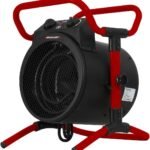In this outstanding article, you’ll find a concise and comprehensive discussion about the average lifespan of a tankless water heater. Using top-notch research and expert opinions, the piece explores various factors that determine the life expectancy of these essential household devices, enhancing your understanding of what to expect when installing a tankless water heater in your home. Get ready to uncover fascinating insights and useful information about tankless water heater’s lifespan.
Understanding Tankless Water Heaters
Tankless water heaters, also known as on-demand water heaters, are a fantastic addition to modern homes. Unlike traditional heaters with storage tanks, these appliances heat water directly without the need of storing it. When a hot water tap is turned on, cold water travels through a pipe into the unit, where it is then heated either by a gas burner or an electric element.
Definition of tankless water heaters
A tankless water heater operates basing on one simple principle: heating water when needed. This means that it eliminates the need for a storage tank. Instead, the water is heated directly as it passes through the unit when you open your hot water tap. So, you don’t have to wait for the storage tank to be filled.
How tankless water heaters work
Here’s a step-by-step visual of how tankless water heaters work: when you turn on a hot water outlet, the unit senses the demand for hot water. The water then flows into the system, and a heat exchanger, either electric or gas-powered, warms the cold incoming water to your preset temperature. The result? A constant supply of hot water anytime you need it.
Types of tankless water heaters
Tankless water heaters come in two fundamental types: electric and gas units. Electric tankless water heaters warm up water using heating elements. They are more energy-efficient and easier to install. Gas units, on the other hand, use a heat exchanger connected to a gas burner. These units offer higher flow rates and are ideal for larger households.
Benefits of using a tankless water heater
There are several benefits linked with using a tankless water heater. Chief among them is energy conservation since they’re designed to heat water directly without the need for a storage tank. This means that standby losses associated with traditional heaters are eliminated. Other benefits include a longer lifespan, lower utility bills, more space in your home, and there’s always hot water when you need it.
Average Lifespan of a Tankless Water Heater
Typical lifespan range
The average lifespan of a tankless water heater is generally longer than that of a traditional storage tank heater. While traditional heaters last around 10 to 15 years, a tankless model can last over 20 years if properly maintained.
Factors that can influence lifespan
The longevity of a tankless water heater can be influenced by several factors. These include the quality of installation, frequency and quality of maintenance, the hardness of your water, and usage frequency and intensity.
Comparison with traditional tank water heaters
Compared to conventional storage tank heaters, tankless models have a longer lifespan – almost twice as long. They’re also more efficient, environmentally friendly, and occupy less space. However, their upfront costs and installation fees are usually higher.
Factors that Influence Lifespan
Quality of the water heater
The quality of your tankless water heater plays a pivotal role in determining its lifespan. Units from reputable manufacturers tend to be more durable and reliable. They come built with high-quality components that resist wear and tear, increasing overall lifespan.
Frequency of use
As you might expect, the more you use your tankless water heater, the shorter its lifespan. Constant pressure and temperature changes can fast-track the wearing out process.
Maintenance practices
Regular maintenance helps keep your tankless water heater performing at its best and extends its lifespan. This includes regular cleaning and flushing, inspecting for leaks and damage, and replacing worn-out parts.
Quality of installation
Improper installation can dramatically decrease your tankless water heater’s lifespan. Therefore, it’s paramount to hire a professional plumber knowledgeable in working with these specific systems.
How to Extend the Lifespan of a Tankless Water Heater
Appropriate installation procedures
The first step towards extending the lifespan of your tankless water heater is getting it professionally installed. Professionals know the right procedures to take, ensuring your system operates efficiently and prevents premature failures.
Regular maintenance recommendations
Proper maintenance is key to a long-lasting tankless water heater. Regular cleaning and flushing, typically once a year, can considerably extend the life expectancy of your unit and ensure it functions efficiently.
Role of water conditioning to improve lifespan
Hard water leads to deposits and scale buildup that can impair your heater’s performance and lower its lifespan. Therefore, water softening or conditioning proves vital in regions with hard water.
Signs of a Failing Tankless Water Heater
Inconsistent water temperature
One of the first signs of a failing tankless water heater is inconsistent water temperatures. If you notice sudden changes in your hot water temperature, your unit may be on its way out.
Unusual noises from the water heater
Strange noises coming from the heater could indicate a problem. Tickling, popping, or hissing sounds might suggest issues like scale buildup or mechanical problems.
Reduced water flow
Experiencing reduced or sporadic water flow? Your unit might be developing a problem. Reduced flow often results from mineral deposits blocking the heat exchanger.
Frequent need for repairs
If your unit requires frequent repairs, it’s a big red flag that your heater might be nearing its end-of-life stage.
Maintaining a Tankless Water Heater
Regular cleaning and flushing
Cleaning and flushing your tankless water heater at least once a year helps prevent mineral buildup, thus ensuring your unit runs efficiently.
Inspecting for leaks or damage
Adopt a regular inspection routine to check for leaks, damage, or part malfunction. Early detection and quick resolution of these problems will extend the lifespan of your unit.
Replacing parts as necessary
Over time, some parts of your unit may wear out and need replacing. Do so promptly and with the right components.
Professional servicing recommendations
While there are procedures you can do yourself, professional servicing is recommended at least once a year. Technicians have the necessary skills and experience to deal with complex issues and service your unit properly.
Selecting a Quality Tankless Water Heater
Looking for reputable brands
Investing in reputable brands may cost more initially, but it guarantees you get a high-quality product that performs well and lasts longer.
Checking product reviews and ratings
Before purchasing a tankless water heater, check out product reviews and ratings online. These will give you an idea of the product’s performance from those who have used it.
Understanding the product warranty
A reliable quality indicator is the warranty period. A longer warranty often suggests a higher quality product.
The Impact of Hard Water on Tankless Heaters
Understanding hard water
Hard water contains a high concentration of minerals like calcium and magnesium, which can lead to limescale buildup in your tankless heater.
The effect of hard water on tankless heaters
Deposits from hard water accumulate over time, compromising the performance of your system and eventually lead to failure.
Solutions for hard water issues
To combat the effects of hard water, consider installing a water softener. It reduces the levels of hardness minerals, thus keeping your unit working efficiently.
The role of professional servicing
When to seek professional help
You need professional help when dealing with issues beyond basic maintenance, such as when you’re having consistent issues with temperature or flow rate.
Benefits of professional servicing
Professional servicing ensures your water heater runs optimally. They can detect, diagnose, and rectify complex issues that you might not handle effectively.
Choosing a reliable service provider
Choose a service provider with vast experience in dealing with tankless water heaters. They should be licensed, insured, and also provide warranties for their services.
Environmental Impact of Tankless Water Heaters
Energy efficiency of tankless water heaters
Tankless water heaters are much more energy-efficient compared to their traditional counterparts. They use less energy as they heat water on demand, significantly reducing energy consumption.
Reduction in water waste
Since they deliver hot water instantly, tankless water heaters contribute to less water wastage, making them more environmentally friendly.
The recyclability of tankless water heaters
Many components in tankless water heaters are recyclable, making them even more eco-friendly. When your heater reaches the end of its life, it won’t go into a landfill, hence reducing environmental pollution.









